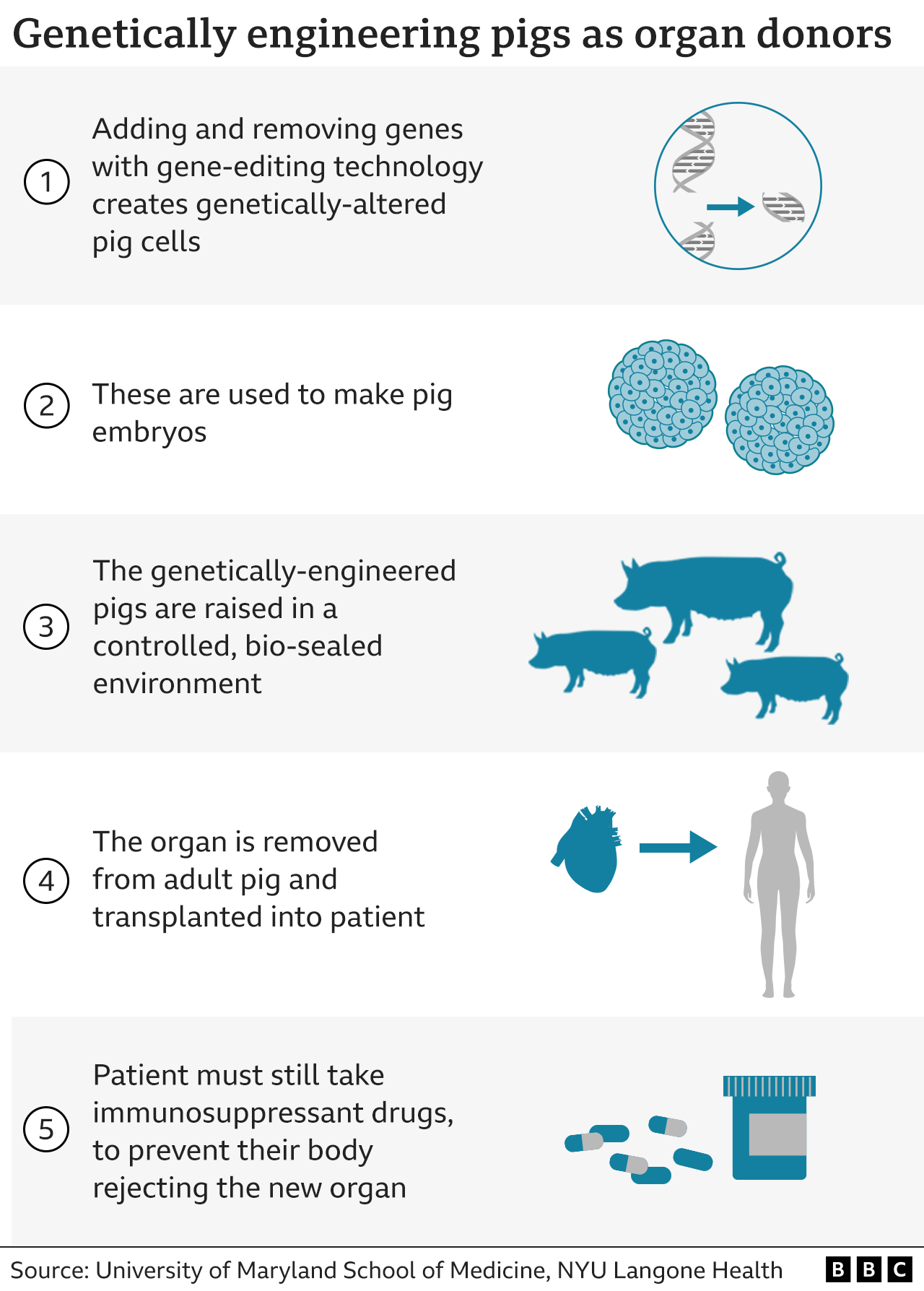Man given genetically modified pig heart dies
The first person in the world to get a heart transplant from a genetically-modified pig has died.
David Bennett, who had terminal heart disease, survived for two months following the surgery in the US.
But his condition began to deteriorate several days ago, his doctors in Baltimore said, and the 57-year-old died on 8 March.
Mr Bennett knew the risks attached to the surgery, acknowledging before the procedure it was "a shot in the dark".
Doctors at the University of Maryland Medical Center were granted a special dispensation by the US medical regulator to carry out the procedure, on the basis that Mr Bennett - who was ineligible for a human transplant - would otherwise have died.
He had already been bedridden for six weeks leading up to the surgery, attached to a machine which was keeping him alive.
Mr Bennett underwent the surgery on 7 January, and doctors say in the weeks afterwards he spent time with his family, watched the Super Bowl and spoke about wanting to get home to his dog, Lucky.
But his condition deteriorated, leaving doctors "devastated".
"He proved to be a brave and noble patient who fought all the way to the end," surgeon Bartley Griffith, who performed the transplant, said in a statement released by the hospital.
But Mr Bennett's son, David Jr, said he hoped his father's transplant would "be the beginning of hope and not the end", according to news agency AP.
"We are grateful for every innovative moment, every crazy dream, every sleepless night that went into this historic effort," he added.


Dr Griffith said previously the surgery would bring the world "one step closer to solving the organ shortage crisis". Currently 17 people die every day in the US waiting for a transplant, with more than 100,000 reportedly on the waiting list.
The possibility of using animal organs for so-called xenotransplantation to meet the demand has long been considered, and using pig heart valves is already common.
In October 2021, surgeons in New York announced that they had successfully transplanted a pig's kidney into a person. At the time, the operation was the most advanced experiment in the field so far. However, the recipient on that occasion was brain dead with no hope of recovery.


The first pig-heart transplant was a landmark moment in medicine.
The biggest barrier to using organs from another species is "hyperacute rejection". The body sees the tissue as so foreign that it starts to kill the donated organ within minutes.
The hope was the 10 genetic modifications made to the pig meant its organs would be acceptable to the human body.
It was a nervous moment when the heart went in, but there was no hyperacute rejection and that monumental barrier had been cleared.
When I spoke to the surgical team one month after the operation they said there were still no signs of rejection and the donated heart was performing like a "Ferrari engine". But they warned Mr Bennett himself was still frail.
Exactly what has happened since and the precise cause of Mr Bennett's death is not clear.
The results of those investigations will determine how close we are to a future of using pigs to solve the global shortage of transplant organs.
Source: BBC












